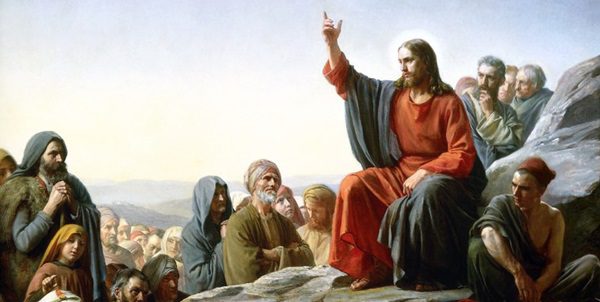 This Sunday, pastors throughout the world who follow the lectionary will preach on the Beatitudes. The Beatitudes begin the “Sermon on the Mount,” which many scholars believe to be Jesus’ fundamental teachings.
This Sunday, pastors throughout the world who follow the lectionary will preach on the Beatitudes. The Beatitudes begin the “Sermon on the Mount,” which many scholars believe to be Jesus’ fundamental teachings.
A Doormat Ethic?
Critics often say that Jesus calls his followers to be a doormat. They point to the Sermon on the Mount, where Jesus says, “turn the other cheek,” “love your enemies,” and “pray for those who persecute you.” In the Beatitudes, Jesus teaches, “Blessed are the poor in spirit” and “Blessed are the meek.”
Does Jesus teach us to be doormats? To sit by while evil and injustice run rampant? It’s strange because the Sermon on the Mount has inspired people throughout history to fight for justice. Just in the 20th century, the Sermon on the Mount inspired Deitrich Bonhoeffer to fight against Nazi Germany. Dorothy Day lived by the Beatitudes as she fought for worker’s rights. Martin Luther King, Jr. was inspired to fight for civil rights. And Mahatma Gandhi read the Sermon on the Mount every day of his life as we sought to free India from the British Empire.
So, what is it about the Sermon on the Mount, and the Beatitudes in particular, that has inspired so many people to fight for justice?
Righteousness and Justice
One answer is found in Matthew chapter 5, verse 6. It is usually translated, “Blessed are those who hunger and thirst for righteousness, for they will be filled.”
In the original Greek, the word for “righteousness” comes from the word dikaios. Righteousness is a good translation, but it is also translated as justice.
In Christian spirituality, righteousness and justice are two sides of the same coin. You cannot be righteous if you are not working for justice. In other words, the way to be righteous is to work for a more just world.
But Bonhoeffer, King, Day, and Gandhi picked up something more from the Sermon on the Mount. Justice does not mean vengeance. That’s why Jesus connects our work for justice with nonviolent love for all people, including those we call our enemies.
Far from being doormats, Jesus calls us to an exciting mission for justice. It’s a holy mission that resists not flesh and blood, but the unjust powers and principalities of the world, as Paul later described it. And we need that mission as much today as ever before.
Whatch my video of this article below!
Image: By Carl Heinrich Bloch – Public Domain – Wikimedia.
Stay in the loop! Like Teaching Nonviolent Atonement on Facebook!











